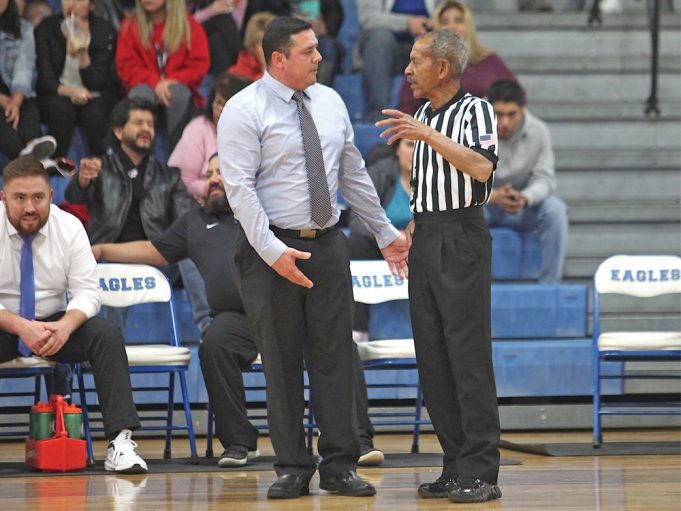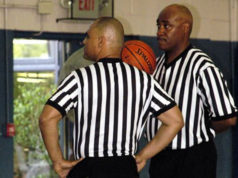There are essentially five reasons why people listen: to gain information, to empathize, to anticipate responding, to make judgments and to enjoy the reception (entertainment). Those are also the reasons officials need good listening skills.
Many tactics for handling games will be told to you in person by other officials. Listening carefully to advice from veteran officials will help you acquire special knowledge about anticipating unusual game situations, dealing with controversy and working with game attendants, such as ball and bat persons, timers, scorers, line judges and chain crews. Listening to learn is one of the most important functions of absorbing data.
Listening to empathize is another important purpose for paying attention. The idea of putting yourself in someone else’s shoes means being aware of another person’s emotions and understanding what their expressions signify — words as well as facial contortions, grimaces, smiles, frowns and gestures of dismay, puzzlement, anger and resignation.
Good listening skills will help you understand why you are being challenged, helping you to empathize with those who do the challenging. Officials often say they must tune their antennae in order to pick up all the nuances of discord.
Once a coach or player explains an objection completely, the listening official must weigh the information, keeping a firm grasp of the other person’s reason for making the objection. Often the reason may appear obvious: The complainant wishes the call to be reversed. But behind some objections are other factors, such as a coach trying to protect a player, trying to save face after a strategic move goes wrong, or even seeking to obtain an edge on future calls through intimidation. Just as officials should “see the whole play,” another piece of advice could be, “hear the whole story.”
Officials can separate the possible motivations of a verbal challenge by taking in the entire context of the message, analyzing the hidden messages and trusting their instincts, as vague as those may be. The official’s response usually takes one of two forms: to deny the challenge, which takes special skills in verbal diplomacy, or to offer a solution to the perceived problem. A solution may include consulting with a crewmate or partner or explaining a rule in clear and pointed terms. The key is to hear the problem in its entirety. Trying to solve problems by slipping into the viewpoint of an antagonist is a very hard part of officiating and it doesn’t come easily.
Many judgments are based on what one sees, naturally, but sometimes they are based on what one hears. Let’s consider a difficulty in a baseball game already underway. A coach calls out, “That pitcher is throwing at my batters!” The context of the listening experience is perhaps the most vital element. All the following questions need to be considered: What inning is it? What is the score? What are the previous game circumstances that affect the present moment? How have you reacted to previous events? Those central questions should pass through your mind while taking in the message and before arriving at a judgment.
Sometimes taking a deep breath before offering a response can help your mind process the entire context and permit you to arrive at a sensible determination. An enemy of effective listening is impulse, because impulse is often triggered by anger. Pause before talking and try adhering to the adage, “Engage brain before opening mouth.” To monitor your own listening tendencies, keep track one day of how often you interrupt the talk of others. If you do it a lot, it means you are in the habit of not waiting for the whole story.
Listening for pleasure is another dimension of the aural sense. It may seem odd officials would listen for pleasure. Although you are not likely to take in the chirping of birds or a melodious symphony while working a game, some of the things you hear can be entertaining. Listen to what players say while in action; sometimes their remarks in the heat of battle are very funny. Many an official has also been moved by stirring renditions from the school band.
You can console players on occasion with a kind word. You can smile in amusement if their antics are humorous without upsetting the continuity of the game. You can also empathize with their celebrations as much as you do with their disappointments. Officiating need not be an entirely impersonal role. People play games for fun or satisfaction; officials should have expectations of the same payoff.
What's Your Call? Leave a Comment:
Note: This article is archival in nature. Rules, interpretations, mechanics, philosophies and other information may or may not be correct for the current year.
This article is the copyright of ©Referee Enterprises, Inc., and may not be republished in whole or in part online, in print or in any capacity without expressed written permission from Referee. The article is made available for educational use by individuals.
















